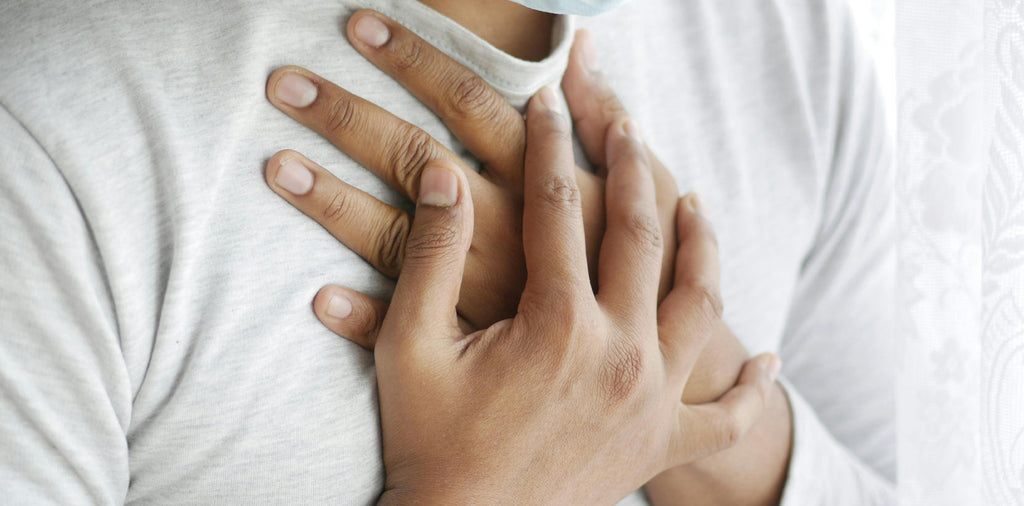In this series of posts, we’ve been looking at the Metal Element in Traditional Chinese Medicine theory, its relationship to the autumn season, and also a look at the “Metal personality”. We have discussed the fivefold concept of the Five Elements and that each element is associated with particular colours, seasons, senses, emotions, personality types, and body organs.
The main organ correspondences of Metal are the Lungs and Large Intestine. This is considered to be a Yin-Yang pairing, as is common for the other elements. Also associated with metal are the nose and skin. We take a much deeper look at these aspects in this article.
The Traditional Chinese Medicine Role of The Lungs
At a simple level, the Lungs take in oxygen and release carbon dioxide. They take in the new and let go of the old, in a Traditional Chinese Medicine analogy. So the Lungs and their associated tissues (nose and skin) form a boundary between the external and internal. Across this vital boundary, respiratory materials can be exchanged – all our energy derives from respiration, which requires oxygen – and the Lungs are responsible for our physical vitality.

However, Traditional Chinese Medicine not only considers the “boundary” as an important role of the lungs, but also adds “breath” and “renewal” as important functions.
“Breath-work” is now used quite commonly in many healing contexts.
The Physically Defensive Role
Most pathogens enter our body through the respiratory and digestive systems, so the lungs and Large Intestine are related to immunity and the strength of the “protective boundary.” The skin also breathes and exchanges substances with the outer environment, and thus the skin is seen as an aspect of Lung function.
According to Traditional Chinese Medicine theory, the body’s defensive energy is directly dependent on the strength of the Lungs and Large Intestine.
The Non-Physical Realm Of The Lungs
The physical concept of the Lungs as a boundary is extended in a psychological sense as a “personal boundary.” We receive experience through this boundary and communicate outward through it. When the boundary is strong, flexible, and responsive, we have a good sense of personal identity and are open to “good” influences and closed to “bad” – in other words, we are able to say “no” when necessary.

The Well-Nourished Lung
A well-nourished Lung system manifests in the physical and psychological:
- Physical vitality
- Clear voice
- Relaxed chest muscles
- Strong immunity
- Good complexion
- Deep breaths
- Fresh breath
- Upright posture
- Positive sense of self-worth
When The Lung System Is Weak
- Poor immunity and vitality
- Shallow breathing
- Respiratory problems
- Dull skin
- Excessive sweating
- Emotional constraint
- Difficulty letting go of people, places, things, grief
- Sadness
- Low self-esteem
- Lack of respect for own and others boundaries
How To Nourish The Lung System
The best way to benefit the Lungs is through breath-work or exercise that develops the breathing system (e.g., swimming). Movements to expand and relax the chest and shoulder muscles and the muscles around the rib cage also help. Voice work, such as singing or practicing voice projection, also develops the Lungs. Some of us find this very difficult (I hate singing in the presence of others), and this may reflect an issue within the Lung system, as it reflects our inhibitions.

Also, dry brushing the skin and wearing natural fibres (or loose fitting clothes sometimes) and appropriate exposure to the sun benefits skin health.
Foods that nourish the Lung system include:
- Low fat proteins – white meat, beans, tofu
- Organic veg, sprouted seeds
- Dairy, if it is not mucus-forming for you – otherwise goat/sheep product
Specific foods and ingredients that I recommend at this time of the year:
- Garlic
- Sweet potato
- Ginger
- Onion
- Cabbage
- Pears
- Walnuts
- Black pepper
- Radish
- Rice
- Chilli
- Cinnamon
- Cardamom
- Leek
- Miso
- Soy Beans
- Almonds
- Asparagus
- Broccoli
- Cucumber
- Celery
- Mustard Greens
- Apricot
- Banana
- Eggs
Avoid foods that cause congestion, for example, fatty meats, processed foods, and dairy for some.

Finally, if you recognise any of the symptoms of the physical or emotional aspects of the Lung system being imbalanced in yourself, then you might consider acupuncture.

Care Consideration: Just a reminder that the above information is not a substitute for medical care and is not a substitute for medical advice or recommendations from a healthcare provider. This information is not intended to treat, mitigate, or cure any disease. That said, we encourage you to connect with an Acupuncturist in your community to learn more about this and other Traditional Chinese Medicine options. If you’ve got questions about Chinese herbal medicine or getting started with an Acupuncturist, feel free to connect with us at hello@mydaolabs.com.
















